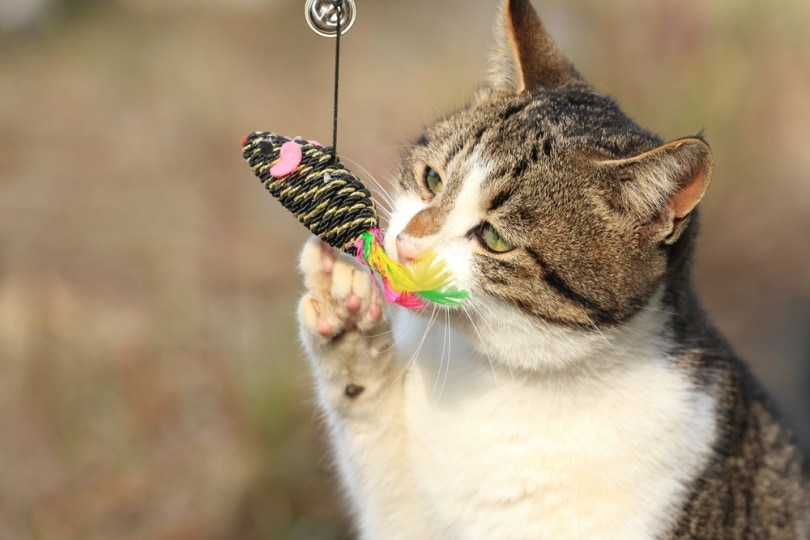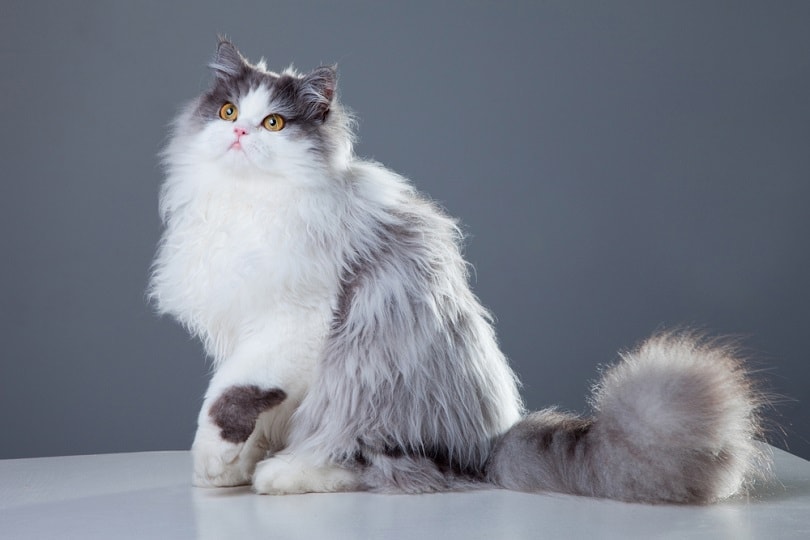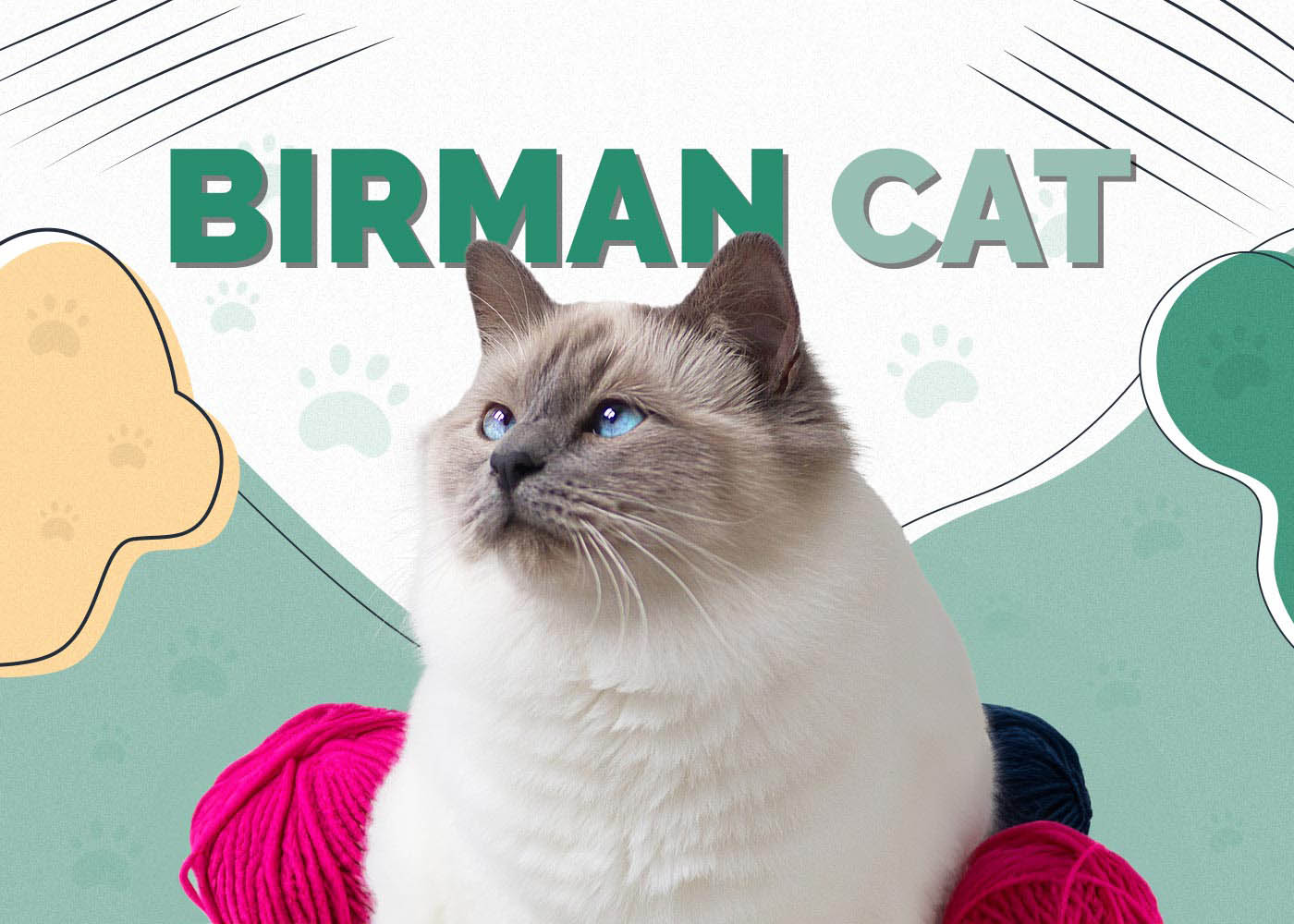7 Common Lykoi (Wolf Cat) Health Problems – Vet-Approved Info
Updated on
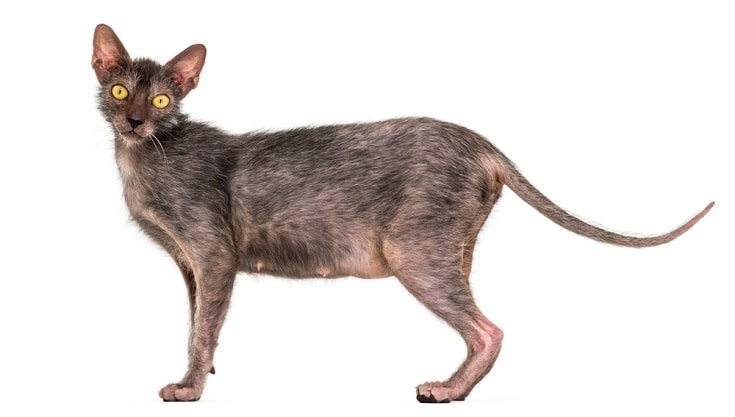
The Lykoi cat is a new breed that resembles a wolf, hence its nickname: the wolf cat. Along with its unusual appearance, it has a unique personality. Lykoi cats are known to be friendly, outgoing, curious, and adventurous.
The breed was recently recognized officially in 2011, so breeders and veterinarians are still learning about these very distinctive felines. However, we have a pretty good idea of what you can expect or should be prepared for should you decide to adopt one. Keep reading for eight common Lykoi (wolf cat) health problems.
The 7 Common Lykoi Health Problems
1. Skin Issues
The only scientific study conducted so far on the unique hair patterns of the Lykoi breed was conducted in Japan. Alopecia, or baldness, is one of the most visibly unique traits of this new feline breed, and the study found that there were fewer hair follicles and that shafts of hair were much thinner. Because they don’t have the protection of an undercoat and may still want to enjoy basking in the sun, they can become sunburned easily. Pet parents should be aware of how much time they spend sunbathing. Because they are hairless or mostly hairless, wolf cats may be susceptible to many of the same skin issues as the Sphynx.
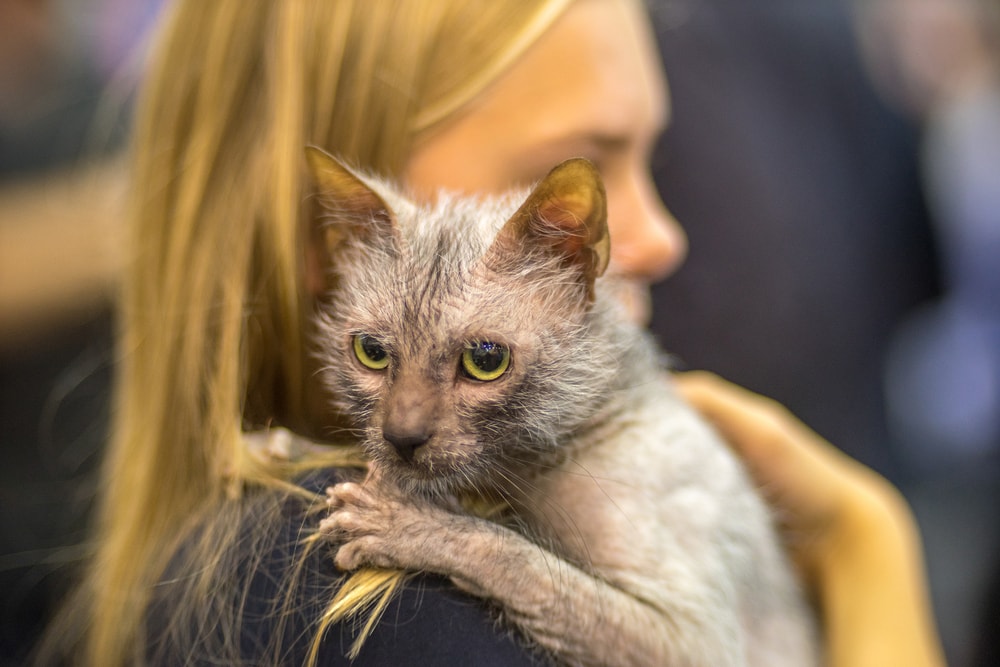
2. Hypothermia
Without much to keep them warm, Lykoi are more likely to become cold, even if it’s not very chilly. Your air conditioner or a ceiling fan may be enough to cause a shiver. Because every cat is unique and some may have more fur than others, your kitty may not need as much help staying warm. However, it’s a good idea to keep blankets and comfortable cat beds around and possibly even warm clothes. The Cat Fanciers’ Association recommends that Lykoi cats should be kept indoors, as outdoor weather could be too cold for the cats.
3. GI Issues
Some cat breeds are prone to digestive issues. The Lykoi is one of them, and the cause may be due to the higher calorie intake they need in order to stay warm without fur. The Sphynx has a similar problem. Wolf cats have such a high metabolism that they have a hefty appetite, and you may be surprised at just how much they can eat. Treating the problem may be as simple as switching to a different type or brand of food, or you may have to work with your veterinarian on a long-term solution to ensure your kitty doesn’t suffer from malnutrition.
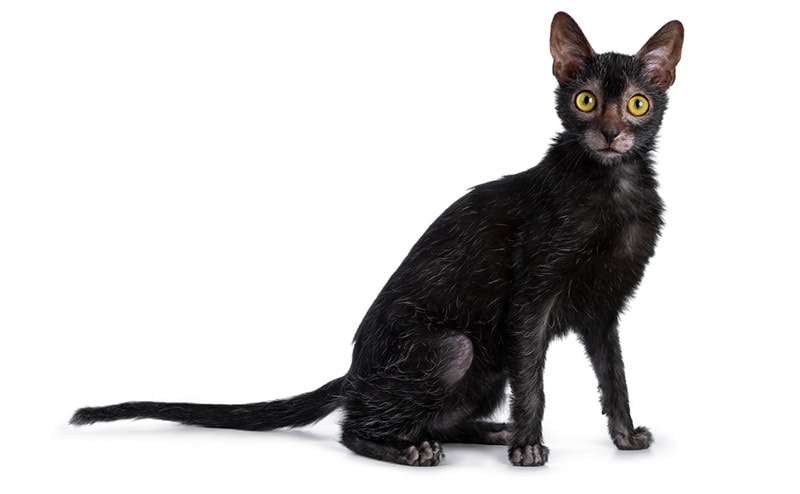
4. Hyperthyroidism
Hyperthyroidism is common among all cats, especially those in middle age or older. For Lykoi, the signs can be especially dangerous because they may not have much excess body weight to lose. You may not notice a distinct increase in appetite if they already have a big appetite. Hyperthyroidism is treatable with a positive prognosis if treated early, but it may also cause other problems such as heart disease.
5. Diabetes
The International Cat Association has a Lykoi Breed Committee that advises against free feeding. While your Lykoi will have a higher calorie requirement than many other cats, and free feeding may seem more convenient than planning meal times, some cats will overeat. Being overweight can contribute to diabetes later in life, making your kitty more susceptible to blood sugar issues and related health concerns, such as kidney disease. Diabetes is becoming more common in older cats of any breed, but by feeding your pet a healthy diet, you may be able to decrease their chances of developing the disease.
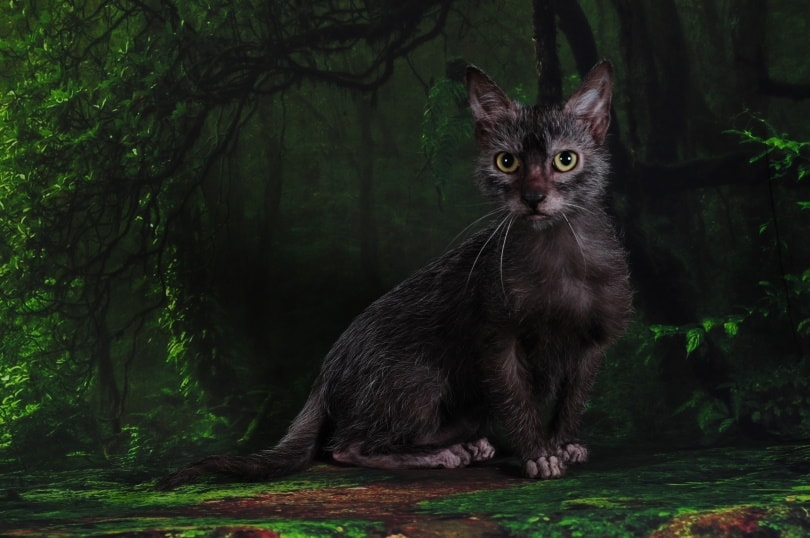
6. Kidney Disease
Kidney disease is prevalent in all breeds but mostly affects older felines that develop chronic conditions due to age. However, acute kidney infections can become a chronic problem if your cat develops these infections often. One possible cause of chronic kidney infections is not drinking enough water, which can happen easily with wolf cats. Because they don’t have a full coat to keep warm, they naturally keep a warmer body temperature. This higher body temperature may require more water intake to stay fully hydrated than other cats. To help keep them hydrated, choose a food with a high water content and switch to a water fountain, as some cats prefer to drink from running water.
7. Cancer
The Flint Animal Cancer Center at Colorado State University estimates that one in five cats will be diagnosed with cancer. Because the Lykoi is such a new breed, it’s difficult to determine if they are susceptible to any particular cancers. However, it’s safe to assume that they are susceptible to cancer in general, as are all their feline friends. Cancers range in types and severity, just as in humans, and treatment may be effective if the disease is caught early. It’s important to work with your veterinarian if your pet is showing any unusual signs.
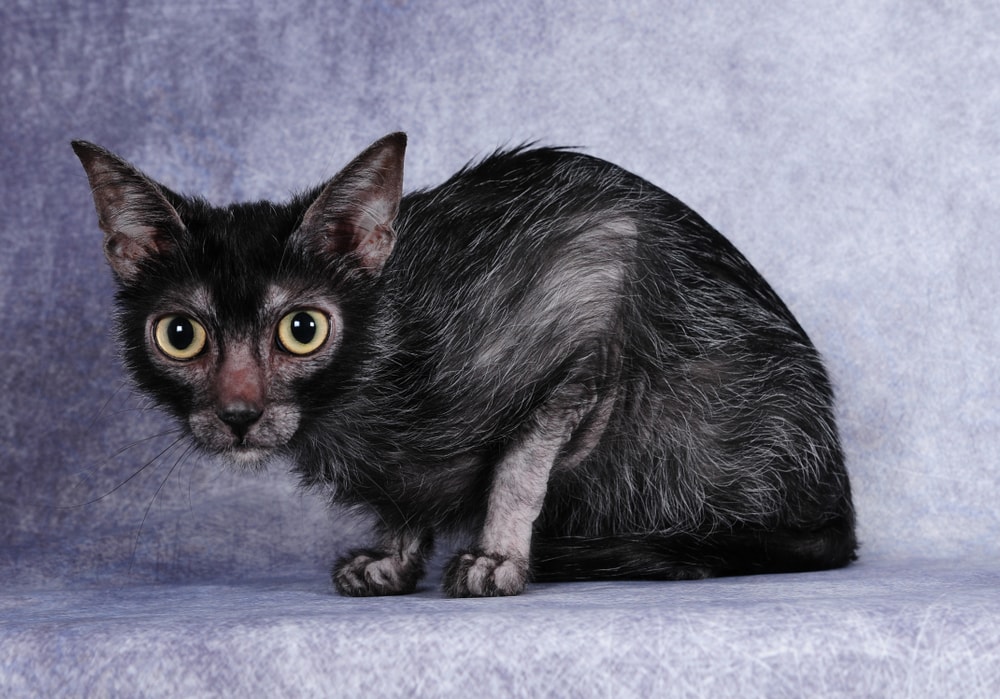
8. Osteoarthritis
Lykoi cats were originally bred for their short coats. Breeders used feral cats to develop the Lykoi, with no ambition to create dwarf features. However, many Lykoi cats are born with achondroplastic dwarfism. The severity of signs are typically much milder in wolf cats than munchkin cats that were bred for their small size. Still, this genetic makeup may cause bone problems even when the cats are kittens, and their shorter limbs can contribute to osteoarthritis later in life. Because the severity of achondroplasia can vary, it’s essential to have your vet thoroughly evaluate your Lykoi for signs of dwarfism.
Conclusion
Whether it’s because of their unique appearance, their genetic predisposition, or just because they are felines, Lykoi cats are prone to a few health issues. If you are intrigued by their ability to command attention or by their looks and big personalities, now you know more about their health status too.
Featured Image Credit: Eric Isselee, Shutterstock

